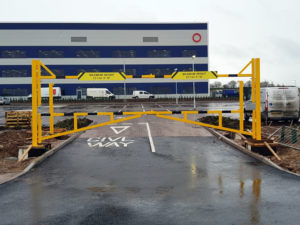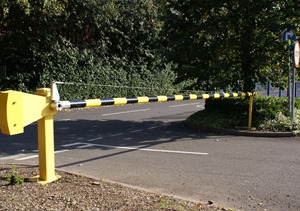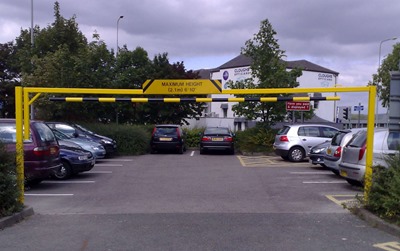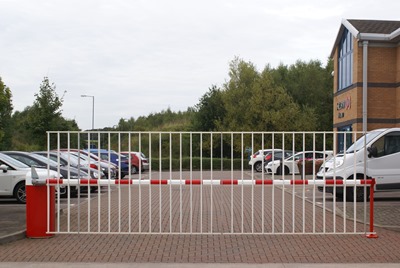
Are you looking to put an end to fly-tipping? Prevent vehicles or visitors from overstaying their welcome? Free up parking spaces for genuine customers? A height restrictive barrier may be just what you’re looking for. Let’s take a look at what they are when you might want to use one, and the different options available today.
What is a height restrictive barrier?
Height restriction can be seen in action in a variety of environments. You will no doubt have driven into a car park with an overhead barrier warning vehicles of certain sizes that they will be unable to enter. Equally, you may have visited a supermarket or service station car park recently where the same restrictions apply.
Height restrictive barriers are designed to block access to heavy and large vehicles either blocking them from access entirely or encouraging them to use alternative areas designed for their vehicle type.
Why use a height restrictive barrier?
There are many reasons why a business may opt to install a height restrictive barrier. One of the most popular reasons is to reduce overnight or illegal stays. Many public and private sector clients have experienced issues with vehicles visiting sites for longer than is welcome, taking advantage of facilities and leaving them in a state of disrepair.
Installing restrictive barriers can prevent that initial access and reduce the need for costly cleaning or other repairs. Equally car park operators can prevent damage to facilities that are not built to accommodate heavy goods vehicles, caravans, or camper vans.
Static or Automatic?
Height restriction barriers may come in the form of static barriers which are locked with padlocks, or automatic barriers which are electronically operated. The choice between the two depends on your circumstances.
If your barrier is going to be installed away from the interior of your site, or on rural land, then your access to electricity may be limited. In this case, it may be best to opt for a traditional manual static restrictor. Static barriers can also be fitted with a low-level barrier that can be fixed into place at your leisure to prevent any vehicular access at all.
However, if mains access is not a problem then you can take advantage of an automatic barrier. With a 10.0M maximum span, these barriers are driven by a 3 phase motor and can be left open or closed depending on your requirements. So if you only want to limit access at specific times of the day or days of the week, then this could be a good solution for you.
Both types of barriers can be fitted with a prominent maximum headroom sign and an optional striped bumper bar made from aluminium can also be fitted for added protection.
Gateway Automation provides a range of products to help businesses and individuals to secure their sites and also provide nationwide servicing and repairs to gates, barriers, and other perimeter security equipment. To find out more, please call us on 01522 682255.

 If you’ve decided it’s time to upgrade your security systems at your site, then one of your first ports of call should be perimeter security. One essential component of site security that should always be considered when enquiring about upgrades is a barrier. Here is what to consider when buying barriers.
If you’ve decided it’s time to upgrade your security systems at your site, then one of your first ports of call should be perimeter security. One essential component of site security that should always be considered when enquiring about upgrades is a barrier. Here is what to consider when buying barriers.



Recent Comments